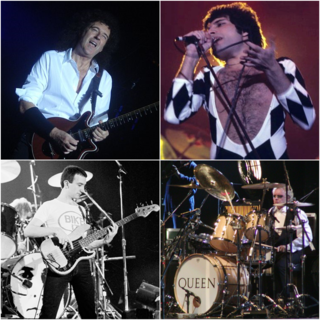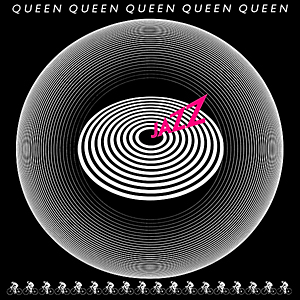
"Crazy Little Thing Called Love" is a song by the British rock band Queen. Written by Freddie Mercury in 1979, the track is included on their 1980 album The Game, and also appears on the band's compilation album, Greatest Hits in 1981. The song peaked at number two in the UK Singles Chart in 1979, and became the group's first number-one single on the Billboard Hot 100 in the US in 1980, remaining there for four consecutive weeks. It topped the Australian ARIA Charts for seven weeks.
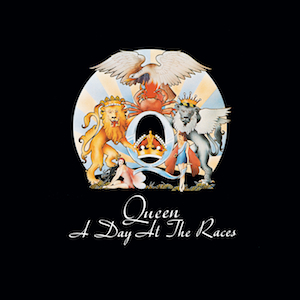
A Day at the Races is the fifth studio album by the British rock band Queen, released on 10 December 1976 by EMI Records in the United Kingdom and by Elektra Records in the United States. It was the band's first completely self-produced album, and the first not to feature producer Roy Thomas Baker. Recorded at Sarm East, The Manor and Wessex Studios in England, A Day at the Races was engineered by Mike Stone. The album serves as a companion album to the band's previous album, A Night at the Opera, both taking their names from Marx Brothers films, as well as sharing similar packaging and eclectic musical themes.
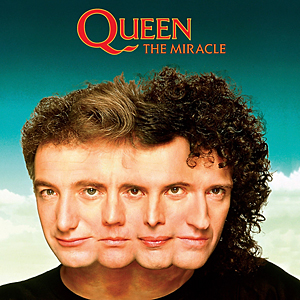
The Miracle is the thirteenth studio album by the British rock band Queen, released on 22 May 1989 by Capitol Records in the US, it is the band's first studio album to be released by Parlophone Records in the UK. The album was recorded as the band recovered from Brian May's marital problems and Freddie Mercury's AIDS diagnosis in 1987. Recording started in January 1988 and lasted for an entire year. The album was originally going to be called The Invisible Men, but three weeks before the release, according to Roger Taylor, they decided to change the name to The Miracle. It was also the last Queen album with a band photo on the front cover.

"Don't Stop Me Now" is a song by the British rock band Queen, featured on their 1978 album Jazz that was released as a single in 1979. Written by lead singer Freddie Mercury, it was recorded in August 1978 at Super Bear Studios in Berre-les-Alpes (Alpes-Maritimes), France, and is the twelfth track on the album.
"Love of My Life" is a song by the British rock band Queen from their 1975 album A Night at the Opera. The ballad was written by Freddie Mercury, for Mary Austin, Mercury's ex-fiancée and best friend. After performing the song in South America in 1981, the version from their live album Live Killers reached number 1 in the singles chart in Argentina and Brazil, and stayed in the charts in Argentina for an entire year.

"Body Language" is a 1982 dance/funk song by British rock band Queen. It was written by the band's lead singer Freddie Mercury and was a hit in North America, where it received extensive radio play. However, the single only received a lukewarm response in the United Kingdom. The track was the second single released from their 1982 album Hot Space. The music video for the song was the first one to be banned from MTV for its nudity, despite the members of Queen being fully clothed.
"Death on Two Legs " is a song by the British rock band Queen and is the opening track on their fourth album A Night at the Opera. The song was written by Freddie Mercury about the band's fall-out with their original manager and Trident Studios owner Norman Sheffield. Though the song makes no direct reference to him, Sheffield sued both the band and the record label for defamation. This resulted in an out-of-court settlement, thus revealing to the public his connection with the song. Roger Taylor also noted that despite the success of "Killer Queen" and Sheer Heart Attack, the album preceding A Night at the Opera, the band was broke before the album was made. Sheffield denied that he or his companies had mistreated the band in his capacity as manager and cited the original 1972 management contracts between himself and Queen in his autobiography published in 2013, Life on Two Legs: Set The Record Straight, in his defence.

"No-One But You " is a song recorded by the remaining three members of the British rock band Queen in 1997 following the death of the lead singer Freddie Mercury in 1991. Guitarist Brian May – the writer of the song – and drummer Roger Taylor share lead vocals. The song was released on the album Queen Rocks and it was also released as a double a-side single with "Tie Your Mother Down".
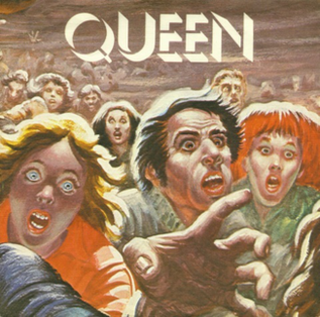
"Spread Your Wings" is a ballad by the rock band Queen, from their 1977 album News of the World. Written by bassist John Deacon, it was released as the A-side of the single "Spread Your Wings"/"Sheer Heart Attack" in 1978.

"Liar" is a song by the British rock band Queen, written by the lead singer Freddie Mercury in 1970, and originally titled "Lover". The song featured on the band's 1973 debut album Queen and it makes prominent use of the flanging effect, especially on the drums and cowbell. A heavily truncated version of "Liar" was released as a single – backed with "Doing All Right" – in the United States by Elektra Records and in Thailand by Royal Sound in February 1974. The music video consisted of the band miming to the song on a sound stage.
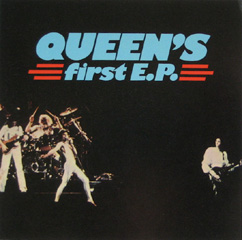
"Good Old-Fashioned Lover Boy" is the eighth track from the British rock band Queen's 1976 album A Day at the Races, written by Freddie Mercury. It was also featured as a track on the 1977 release Queen's First EP. It was one of several British music hall-inspired songs composed by members of the band.

"Save Me" is a song by the British rock band Queen from their 1980 album The Game. Written by guitarist Brian May, it was recorded in 1979, and released in the UK on 25 January 1980, nearly six months prior to the release of the album. "Save Me" spent six weeks on the UK Singles Chart, peaking at number 11.

"Fat Bottomed Girls" is a song by the British rock band Queen. Written by guitarist Brian May, the track featured on their 1978 album Jazz and later on their compilation album Greatest Hits. When released as a single with "Bicycle Race", the song reached number 11 in the UK Singles Chart and number 24 in the Billboard Hot 100 in the US.

"Long Away" is a song by the British rock band Queen; it is the third track on their 1976 album A Day at the Races. Brian May wrote the song and sings the lead vocals. It is the only Queen single released during Freddie Mercury's lifetime not to be sung by him.

"Jealousy" is a song by British Rock band Queen which was originally released on their seventh studio album Jazz in 1978, and one year later was released as the fourth and last single from the album. It was written by Freddie Mercury.

"Las Palabras de Amor " is a rock ballad by the British rock band Queen. It was released as the third single from their 1982 album Hot Space. It is sung mostly in English, but with several Spanish phrases. Written by guitarist Brian May, the song proved more popular in the United Kingdom than their previous single, reaching #17 in the UK Singles Chart.

"The Miracle" is the fifth and final single from Queen's 1989 studio album of the same name. It was composed by the entire band, though Freddie Mercury and John Deacon were the main writers. It was released as a single in late November 1989, some six months after the album. It was the last of the singles from that album to be released, and the first 5th single released from any of Queen's albums from EMI.

"Let Me Live" is a song by Queen, from the album Made in Heaven. Freddie Mercury, Roger Taylor and Brian May share lead vocals, with Mercury singing the first verse, Taylor singing the second verse & bridge, and May singing the last verse. During the choruses, all of the band members sing, as well as a background choir, giving it a gospel sound reminiscent of the band's 1976 single "Somebody to Love". The single reached #9 in the UK Single Charts.
The English rock band Queen was well known for its diverse music style .queen was catalogues, large sound systems, lighting rigs, innovative pyrotechnics and extravagant costumes often gave shows a theatrical nature. Artists such as Bob Geldof, George Michael, David Bowie, Kurt Cobain, and Robbie Williams have expressed admiration for lead singer Freddie Mercury's stage presence.{{ |date=October 2007}}


